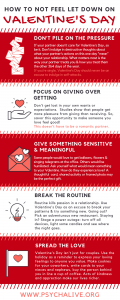Seven Real Vows to Make Your Marriage Last
 June is the most popular month for weddings. The questions overwhelming many soon-to-be newlyweds tend to involve dresses, cakes, guests and venues. When you think about it, although the price tag and party planning committee tend to be larger, the concerns of the engaged couple are not so different from the concerns we held as small children about to experience a birthday party. With all the fun and fuss of planning a wedding, the focus on the “ever after” can sometimes be overshadowed by the events of “The Big Day.”
June is the most popular month for weddings. The questions overwhelming many soon-to-be newlyweds tend to involve dresses, cakes, guests and venues. When you think about it, although the price tag and party planning committee tend to be larger, the concerns of the engaged couple are not so different from the concerns we held as small children about to experience a birthday party. With all the fun and fuss of planning a wedding, the focus on the “ever after” can sometimes be overshadowed by the events of “The Big Day.”
As brides and grooms all over the world sit down to write their vows and envision their futures with their spouses, they may not realize that the vows they should be making have much less to do with what they are pledging to their partners and much more to do with a promise they are making to themselves. The question all of those getting married (or are already married for that matter) should be asking is, “What can I bring to the marriage that will keep my love, excitement and appreciation of my partner alive?”
What individuals who’ve been in lasting relationships often discover is that the promises that make marriage last have less to do with devotion and more to do with equality, less to do with union and more to do with independence and respect. With that in mind, here are seven vows that, if kept in the forefront of a person’s thoughts and actions, will help to keep a relationship as romantic, exciting and enjoyable as the wedding itself.
1. “I promise to support what lights you up… even if it has nothing to do with me.”
Getting married often involves the misconception that we now hold some sort of magical power over our partner. Since when does having the right to love someone give us the right to change who they are? Couples can be compatible without mirroring one another exactly. If a husband wants to go to a meditation retreat or a wife wants to climb a mountain, the fact that we don’t share these interests is not a reason to hold our partners back from being who they are.
It’s important to accept that no one person can match our every interest or meet our every need. Good advice for anyone in a relationship is to not expect to get all your needs met by one person. If we focus our attention on our partners and place all of our demands on them, we will find our worlds becoming smaller and smaller. Relationships should be used to expand, not diminish our lives. Even when our partner’s unique interests feel threatening to us, we can be supportive of their independence and benefit from the reward of them being free to be who they are.
2. “I promise to be an equal in everything we share.”
Failing to maintain equality in a long-term relationship allows dynamics to play out that can weaken the positive feelings we have for each other. Over time, any inequalities that exist in the beginning of the relationship become more pronounced until finally, the couple is at odds with each other. When one person is adult and the other childish, they typically evolve into the roles of an angry, disapproving parent and a helpless, incompetent child. When one is more extroverted and the other withdrawn, they become a couple where one is silent and the other is the spokesperson for the duo.
It is important to take a hard look at ourselves and at any ways that we may be acting unequal in our relationship. We should try to recognize if we are being childish and inferior and if we are being parental and superior. When we stop ourselves from acting out these behaviors, we stop provoking a corresponding reaction in our partner. For example, we may not like when our partner tells us what to do, yet we may be asking for that reaction by complaining about problems we could easily solve ourselves.
3. “I promise not to see you as an extension of myself.”
The mutual respect and equality that most couples feel when they are just getting to know each other often seems to fade with familiarity. When we first fall in love with someone, we value them for their opinions, thoughts and beliefs. Yet as we begin to see ourselves as a part of a couple or when we start to regard our mate as our missing piece, we sacrifice the sense of individuality that enabled us to fall in love in the first place. Viewing our partners as part of us, allows us to lose a sense of boundary or respect for them and for ourselves.
These feelings often lead to us slipping into routines instead of maintaining the adventure of sharing life with a separate person. We may be bonded by matrimony, but when we start seeing our partner as a part of us, we begin to formulate a bond based more on fantasy than real love. Looking at our spouses as our right arm may feel nice until we realize we are no more attracted to them than we are to our right arm. This “fantasy bond” creates a relationship built on form over substance, jealousy over excitement, neediness over attraction. You can take action, such as breaking routines and maintaining communication, to keep your relationship real and avoid a fantasy connection.
4. “I promise to be open to anything you have to say and to always look for the kernel of truth in your words.”
Most arguments in couples are impossible to mediate for one reason: Both people are right, and both are wrong. They are in a stalemate, because, in defending their own points of view, neither person can see the point of view of their partner. Though it may sound silly, it’s actually valuable to take the advise of business consultants who recommend that the first step in resolving an altercation is to see your adversary’s side of the argument, then for them to see yours, and finally to look together for common ground between the two points of view. If no agreement can be reached, it is also possible for two people to agree to disagree and maintain their loving feelings for each other.
More often than not, couples fight fire with fire, swapping insults and complaints that, although they may be valid, rarely get them anywhere in terms of finding a common ground. When our partner says something to us, it’s all too easy to get defensive; our knee-jerk reaction is often to counter attack. It is possible to talk to one another about our feelings without being critical or complaining. Someone as close to us as our spouse may not be entirely right about us but rarely are they entirely wrong. By staying open and vulnerable to feedback, we can respond sensitively to our partners while learning more about ourselves. We are also more likely to entice an open reaction from them when something bothers us, and we can both benefit from having a more honest relationship truly built on trust.
5. “I promise not to project elements from my past onto this relationship.”
Though it may sound vague and simplistic, this is perhaps the hardest vow for any of us to keep, as we are rarely entirely conscious of the ways our past experiences infiltrate our present actions. However, our reactions in our closest relationships often have more to do with defenses constructed long ago and old projections that we make on our partner than on anything going on in the present. For this reason, when something bothers us about our partner, it’s always important to think about why it bothers us – is it more our own overreaction or more a quality we really don’t like? An important form of honesty in a relationship that is often overlooked is getting to know yourself. Thinking about how past experiences shape our current perceptions can help us identify when our reactions are overreactions and inappropriate to our current situation.
For example, a couple I worked with was having disputes over their finances. They were facing some financial challenges, and the husband complained that his wife didn’t trust him to be careful with money, and she argued that he didn’t take her budget concerns seriously. When they looked at the facts about their financial situation and their spending habits, they realized that neither of their concerns was valid. As they investigated their attitudes toward each other, the husband recognized that his feeling that he was guilty of overspending came from his father, who complained about money and accused his children of leaving him broke. The wife recognized that her fear of being impoverished came from how her own mother overspent and left everyone in her family feeling insecure and worrying over money.
6. “I promise to make my actions meet my words.”
Every one of us knows that couple who seems to detest each other, who argue day and night and who still close out every phone call with “I love you.” This couple single-handedly illustrates how, when it comes to love, showing is more important than telling. It’s not enough to say “I love you” when our actions aren’t loving. We can all find examples of this in our everyday lives: in those of us who say we want to be close but continually make excuses for not spending time together, or those who say we want to have a personal conversation but then criticize what our partner says, or those who say we want to be more sexual and proceed to watch TV late into the night.
7. “I promise not to act because of a sense of obligation but because I enjoy what I can offer you and appreciate what you offer me.”
When a relationship starts to become routine and lose its excitement, the little thoughtful acts that were originally an expression of our love begin to feel like burdensome obligations. Anything from giving our spouses a ride to the airport to making them a morning cup of coffee can be a sweet gesture until we start to resent it or imagine it’s being demanded of us. At this point, it is good to reassess what matters to us.
Where is the feeling of obligation coming from? Is the sense that we have to do certain things actually coming from demands we are putting on ourselves? Have we gotten into thinking about our day as a long list of “shoulds” rather than a list of “wants.” Unfortunately, society often sneers at lovers when they are kind to each other. A person who does a favor for their mate is often viewed as acting foolish or even pathetic or taken advantage of. In truth, it hurts us to hold back the behaviors that convey our love for our partner. Therefore, we should consistently try to think of what we can do that will not only make our partner happy, but will make us happy as a result.
Tags: defenses, fantasy bond, fear of intimacy, intimacy, love, marriage, personal growth, relationship, relationship advice, relationship problems, relationships, self development









Leave a Reply
You must be logged in to post a comment.